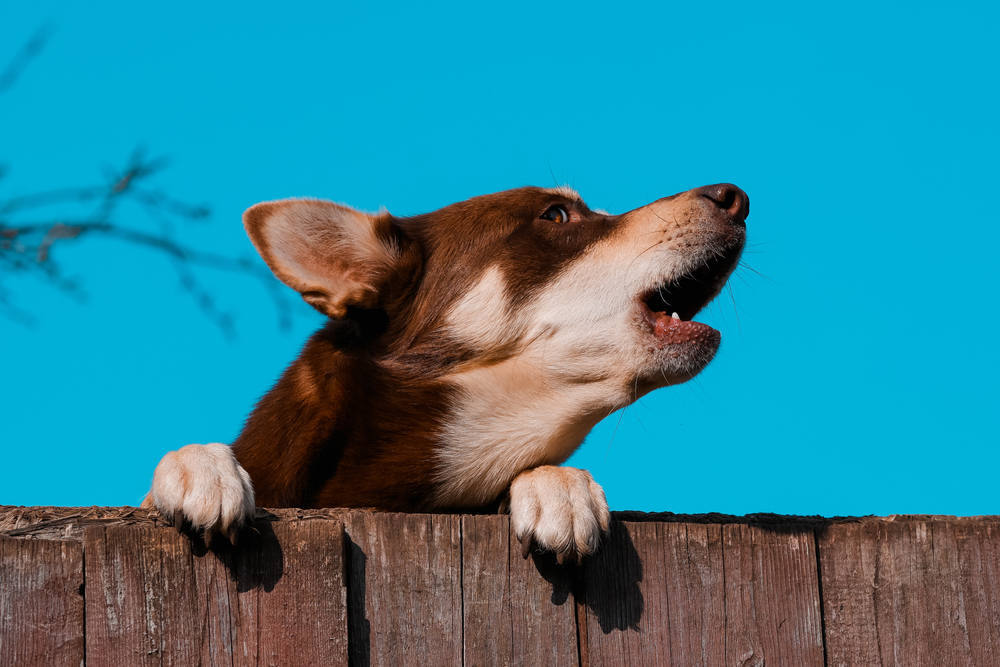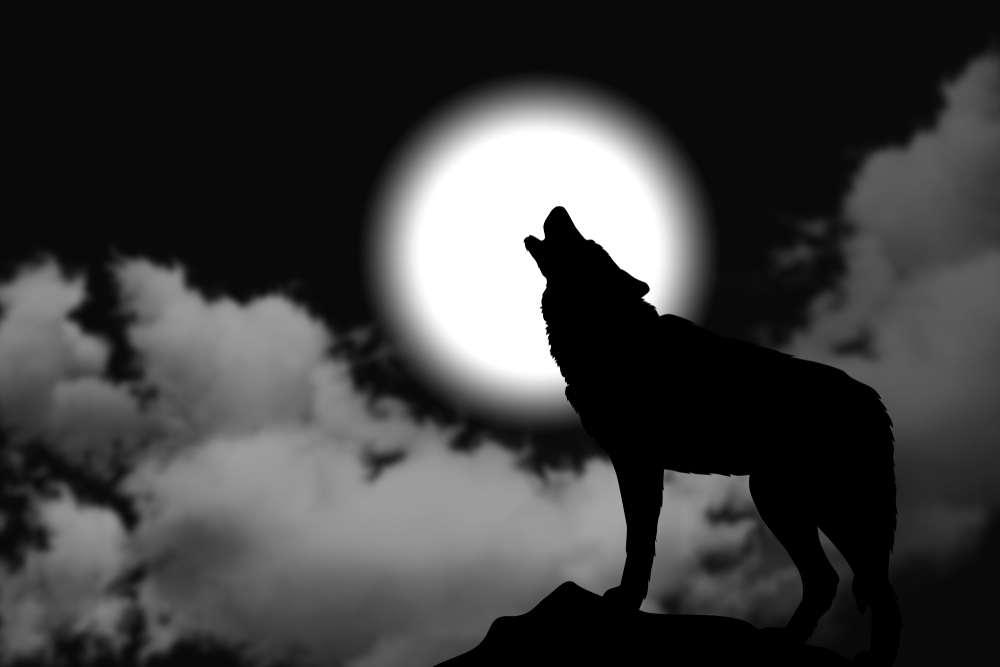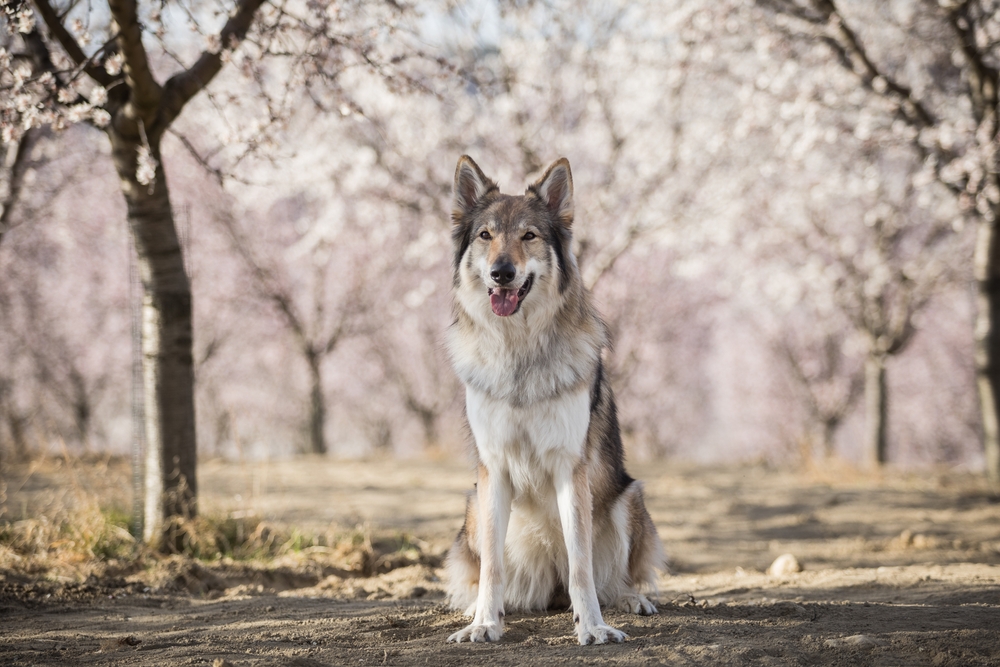Dog superstitions span a fascinating spectrum of cultural beliefs, each offering a unique window into how people relate to their canine companions. From omens of disaster to harbingers of fortune, dogs have been seen as mystical creatures in numerous societies. While some of these ideas may seem antiquated, they continue to persist in various parts of the world, influencing local customs and behaviors. Here are 14 unusual dog superstitions that showcase how these furry friends continue to capture our imagination and shape our traditions.
1. Dogs Howling Signals Death

In many cultures, a howling dog is not just a mournful sound — it’s a harbinger of death. People in some European villages believe that if a dog howls outside a home, someone inside will soon die. This belief likely stems from ancient times when dogs were thought to be able to sense the presence of spirits. Their howling, therefore, was interpreted as a response to supernatural energy or a prediction of impending doom.
Research by Dr. Stanley Coren, a psychologist and expert in canine behavior, suggests that dogs can indeed sense environmental changes, which may lead them to act differently. However, there’s no scientific evidence to support the idea that a howling dog can predict death. Instead, a dog’s howl often communicates loneliness, distress, or a response to high-pitched sounds. While the superstition persists, it’s more a testament to human imagination than canine intuition.
2. Black Dogs Are Ghostly Spirits

In some parts of the world, black dogs are seen as omens of misfortune or even manifestations of spirits. This belief is particularly prevalent in European folklore, where a black dog might be associated with the devil or a ghostly figure. Encountering a black dog at night, especially one with glowing eyes, is thought to be a sign of bad luck or imminent danger. These stories have permeated literature and film, reinforcing the eerie reputation of black dogs.
Contrastingly, in other cultures, black dogs are symbols of protection and guardianship. For example, in some Asian traditions, they are believed to ward off evil spirits. Despite their mixed reputation, black dogs experience higher rates of adoption rejections, a phenomenon known as “black dog syndrome.” It’s a curious case where superstition may influence real-world outcomes, demonstrating the power of cultural narratives.
3. Dogs Can Predict the Weather

Dogs have long been thought to predict weather changes, a belief that persists in rural communities worldwide. People used to say that when dogs eat grass, it means rain is coming, or if a dog lies on its back with its belly exposed, you can expect a sunny day. These behaviors are often linked to a dog’s sensitivity to atmospheric pressure changes and natural instincts. While these claims are charming, they are more folklore than fact.
A study by the American Meteorological Society examined whether animals, including dogs, could predict weather changes. The findings showed that while animals might react differently under certain weather conditions, their behavior is not a reliable predictor. Dogs might eat grass to induce vomiting or lie on their backs simply for comfort. The superstition highlights our tendency to attribute mystical explanations to natural behavior.
4. Dogs Barking at Night Is an Omen

Hearing a dog bark at night is considered an unsettling omen in various cultures. It’s believed to signify that a spirit or ghost is passing by, prompting the dog to alert its human companions. People often attribute unusual nighttime barking to the presence of otherworldly entities or looming disasters. These beliefs can be traced back to ancient times when unexplained events were often attributed to supernatural causes.
In reality, a dog barking at night often has a more mundane explanation. Dogs may bark due to unfamiliar noises, the presence of nocturnal animals, or simply because they’re restless. Understanding the reasons behind a dog’s bark can often alleviate fears rooted in superstition. Yet, for many, the eerie howl of a dog at night still raises the hairs on the back of their necks.
5. Dogs Have Special Connections to the Afterlife

In some cultures, dogs are believed to have a special connection to the afterlife. Ancient Egyptians revered dogs as sacred animals associated with Anubis, the god of the dead, who guided souls to the afterlife. This belief extends to modern times, where some people think dogs can see spirits or act as protectors against evil entities. Dogs’ heightened senses and mysterious behavior contribute to the belief that they have insights into the spiritual realm.
A study published in the Journal of Parapsychology examined whether animals can sense paranormal activity. While intriguing, the study found no conclusive evidence that dogs can perceive spirits or the afterlife. Instead, it highlights the human desire to find meaning and comfort in the unknown. The idea that dogs serve as spiritual guides reflects their role as devoted companions, bridging the gap between the earthly and the ethereal.
6. White Dogs Bring Good Luck

In contrast to their black counterparts, white dogs are often seen as symbols of good luck and purity. In certain cultures, owning a white dog is believed to bring prosperity and happiness to the household. These dogs are thought to possess a unique aura that attracts positive energy and wards off evil. This belief is especially prevalent in parts of Asia, where white animals hold special significance.
The association of white animals with purity and luck likely stems from their rarity and visibility. White coats make animals stand out, thereby heightening cultural awareness and symbolic interpretation. People may interpret positive events or changes in their lives as being connected to their white canine companions. Whether or not these beliefs are true, they underscore the deep emotional bonds between people and their pets.
7. The Moon Influences Dog Behavior

People have long associated dogs with the moon, attributing mystical qualities to their nighttime behavior. In some cultures, a dog’s howling at the moon is thought to be influenced by lunar phases, especially the full moon. This belief aligns with ancient myths that portray the moon as a powerful force affecting both human and animal behavior. Dogs are believed to be more active during full moons, adding to their mysterious allure.
A study conducted by the University of Colorado investigated the effects of moon phases on animal behavior, including dogs. The research found no significant evidence linking lunar cycles to changes in dog behavior, suggesting that observed patterns are coincidental. Despite scientific findings, the idea of a mystical connection between dogs and the moon persists, fueled by myths and tales passed down through generations. It illustrates our fascination with the cosmos and its perceived influence on earthly life.
8. Dogs Are the Appointed Guardians of the Home

The image of dogs as protectors of the home is a longstanding belief found in many cultures. Beyond their physical ability to guard property, some people believe dogs have a spiritual role in safeguarding their homes. According to folklore, dogs can detect negative energies and ward off evil spirits that might threaten the household. This belief is firm in cultures with rich traditions of spiritualism and shamanism.
While there’s no scientific proof that dogs have supernatural powers to protect homes, their presence provides psychological comfort. Knowing a loyal companion is watching over a home can bring peace of mind and security. Dogs’ acute senses and territorial instincts make them natural protectors, reinforcing their role in this ancient superstition. Whether through tangible actions or perceived mystical abilities, dogs remain cherished as guardians.
9. Dog Dreams Mean Something Important

In various cultures, dreaming of a dog is thought to have significant symbolic meaning. Dogs appearing in dreams are often interpreted as signs of loyalty, friendship, or protection. Some believe that dreaming about a dog indicates upcoming changes in relationships or personal life. The dog’s nature in the dream—friendly or aggressive—can further influence its interpretation.
Psychologists often view dreams as reflections of subconscious thoughts and emotions. A dog in a dream may symbolize a desire for companionship, security, or the ability to navigate social dynamics. While dream interpretation lacks scientific grounding, it remains a popular way to explore personal feelings and experiences. The enduring fascination with dog-related dreams highlights the profound psychological connection people have with these animals.
10. Dogs Have Healing Powers

In some traditional practices, dogs are believed to have healing powers. Their presence is believed to promote physical and emotional well-being, a belief that persists across cultures. Some people even claim that a dog licking a wound can expedite healing, although this practice is not medically endorsed. The idea that dogs possess curative abilities underscores their reputation as nurturing and empathetic creatures.
Scientific research supports the positive impact of dogs on human health, albeit not in the mystical sense. Studies show that interacting with dogs can reduce stress, lower blood pressure, and improve overall mood. The companionship of a dog provides emotional comfort and can enhance recovery from illness or trauma. While not magical healers, dogs undeniably contribute to human well-being in meaningful ways.
11. Seeing a Random Dog Is a Sign of Wealth

In certain cultures, seeing a dog cross your path is considered a sign of incoming wealth. This superstition often involves specific circumstances, such as the direction the dog is coming from or the time of day. A dog approaching from the left, for instance, might be seen as particularly auspicious. These beliefs reflect the human tendency to seek patterns and omens, linking everyday occurrences to future prosperity.
The superstition may have origins in the perception of dogs as loyal and trustworthy companions. Their presence is interpreted as a positive omen, symbolizing forthcoming success and abundance. While there’s no empirical evidence to support such claims, people continue to find comfort in these traditional beliefs. It’s a reminder of how dogs are woven into the fabric of cultural narratives, representing not just pets but also potential harbingers of fortune.
12. Dogs Present at Birth Bring Good Luck

Some cultures believe that having a dog present during childbirth can bring good fortune and protection. It’s thought that dogs have an instinctive ability to ward off evil spirits during this vulnerable time. This superstition reflects the historical role of dogs as guardians and their perceived connection to the spiritual realm. In some rural communities, dogs are still welcomed in birthing spaces for this reason.
Practical considerations, such as a dog’s calming presence, might contribute to this tradition. The companionship of a trusted pet can offer emotional support to expectant parents. While modern medicine doesn’t recognize any special powers in dogs during childbirth, the practice speaks to deep-rooted cultural customs. It highlights how dogs are seen as integral family members, involved in significant life events.
13. Dogs Share Spiritual Messengers

In some traditions, dogs are believed to act as messengers between the earthly realm and the spiritual world. This concept is prevalent in Native American cultures, where dogs are seen as guides or mediators. Their role as intermediaries is thought to facilitate communication with ancestors or spiritual entities. These beliefs emphasize the sacred bond between dogs and humans, transcending the physical world.
Anthropological studies suggest that such beliefs arise from the close relationship people have with dogs. Their behavior can seem mysterious, leading to interpretations of more profound significance. While no scientific basis supports the idea that dogs can communicate with spirits, the belief underscores the spiritual dimension attributed to them. It reflects a view of dogs as more than mere animals, but as partners in navigating life’s mysteries.
14. Dogs Perceive Invisible Threats

In certain cultures, dogs are believed to be able to perceive threats invisible to humans. This includes sensing negative energies or the presence of malevolent spirits. A dog growling or acting defensively without an apparent cause might be interpreted as a warning. These beliefs highlight the trust people place in dogs’ instincts, perceiving them as protectors against unseen dangers.
While dogs possess keen senses that allow them to detect subtle changes in their environment, attributing supernatural awareness to them is more folklore than fact. Their reactions often stem from hearing sounds or detecting scents that humans cannot perceive. Nonetheless, the idea that dogs can guard against invisible threats persists, showcasing the depth of their perceived protective role. This belief reinforces the notion of dogs as faithful guardians, always alert to safeguard their human companions.
